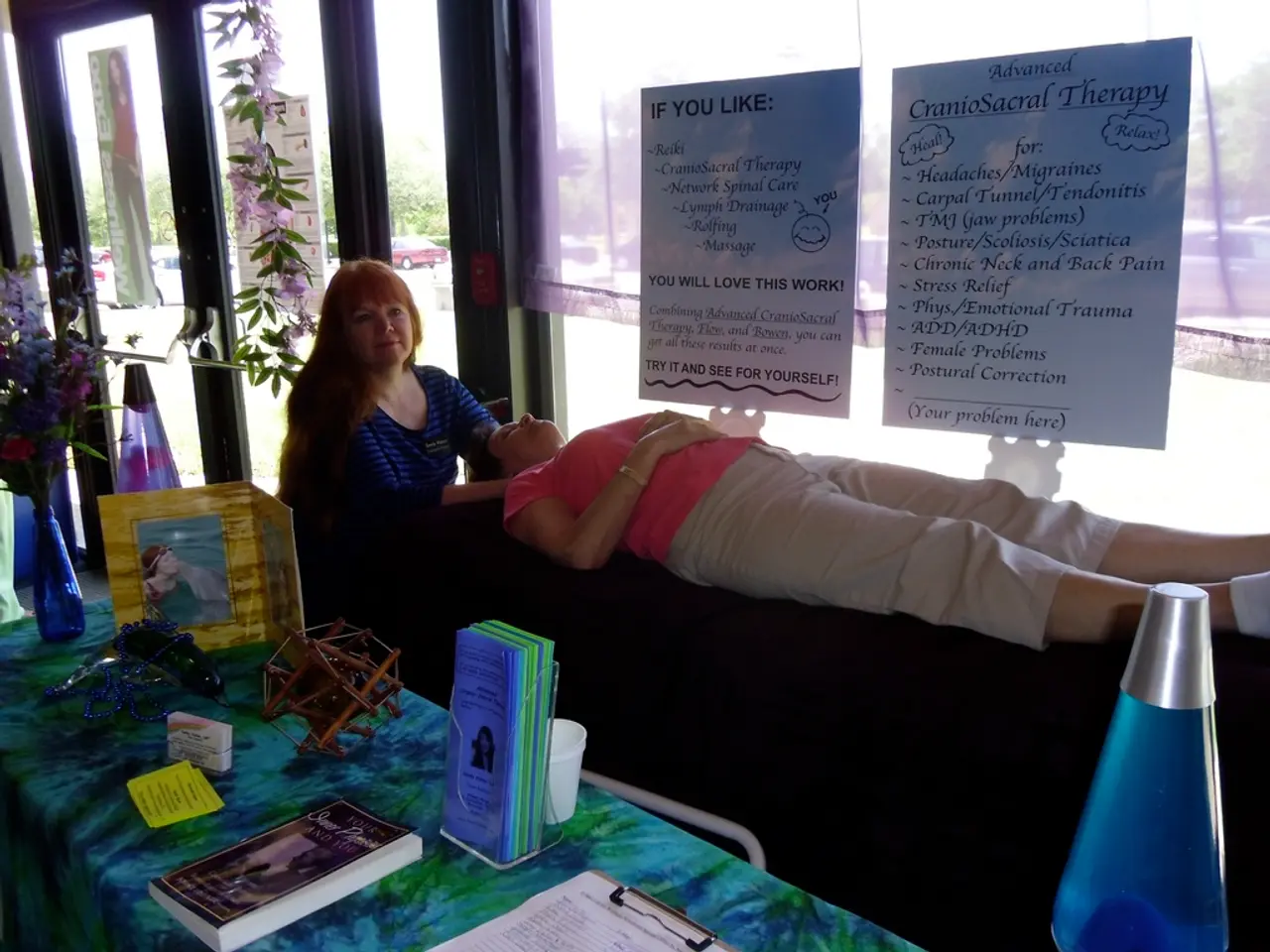Strategies for Disrupting Harmful Sequences from Past Childhood Trauma
Post-Traumatic Stress Disorder (PTSD) can be a challenging journey, but there are numerous strategies that can aid in recovery. Here are some practical approaches to help individuals navigate the path towards healing and growth.
## Building a Support Network
One of the most crucial aspects of recovery is building a strong support system. Peer support groups, family, friends, and online communities can all provide a sense of belonging, understanding, and emotional support, reducing feelings of isolation.
## Finding Healthy Outlets
Physical exercise, creative therapies, mindfulness, and meditation are all effective methods for managing stress and improving mood. Regular physical activity can help release endorphins, while activities like art, music, and dance provide non-verbal avenues for expressing emotions. Mindfulness and meditation practices can help individuals stay grounded in the present moment, improving emotional regulation.
## Changing Thought Patterns
Cognitive Behavioral Therapy (CBT) skills, journaling, and gratitude practice can all help individuals challenge negative thought patterns and develop healthier coping strategies. Writing down thoughts and feelings can help identify patterns and facilitate a more positive outlook, while focusing on gratitude daily can shift perspective and improve mood.
## Setting Boundaries
Prioritizing self-care, learning to say no, and effective time management can all contribute to maintaining emotional equilibrium. Establishing routines that prioritize self-care and balancing responsibilities with downtime can prevent burnout.
## Practicing Self-Compassion
Self-acceptance, mindful self-care, and forgiveness are all essential components of self-compassion. Recognizing and accepting one’s experiences without judgment, engaging in activities that promote relaxation and comfort, and practicing forgiveness can all enhance self-compassion.
## Cultivating Resilience
Building routine, surrounding oneself with supportive people, and learning new skills can all boost confidence and adaptability. Spending time in nature, interacting with animals, and engaging in yoga and breathwork can also help reduce stress and improve mood.
These strategies, when combined with professional guidance, can provide a comprehensive approach to recovering from PTSD. Affirmations can gradually change one's inner dialogue, promoting positivity, while self-compassion involves silencing the inner critic and replacing self-flagellation with gentle kindness. Healing from childhood trauma is a process that happens over time with grace, and trauma-free zones offer fertile ground for mental well-being, meaningful relationships, and enhanced resilience against life's ups and downs. Cultivating resilience prepares individuals for various challenges, boosting their confidence, and trauma-free zones foster trust and empathy-based connections, leading to healthier relationships.
- Science demonstrates that mindfulness and meditation are effective methods for managing stress and improving mental health, contributing to the overall health-and-wellness of individuals.
- Education-and-self-development resources, such as Cognitive Behavioral Therapy (CBT) skills, journaling, and gratitude practice, can aid individuals in changing negative thought patterns and developing healthier coping strategies.
- Personal-growth is achievable through strategies like self-compassion, practicing forgiveness, and cultivating resilience, all of which help in enhancing emotional health and promoting positive mental-health.




